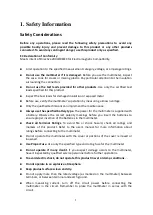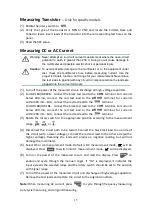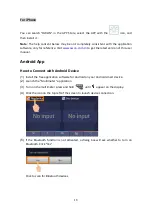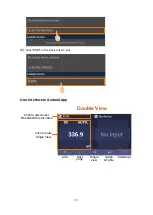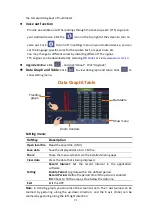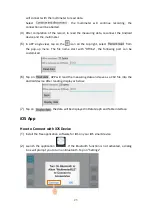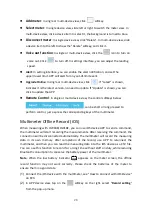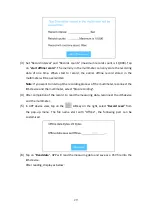
3.Making Measurements
(3)
Probe the test points and read the display.
Measuring Frequency
(1)
Rotate the rotary switch to
.
(2)
Connect the black test lead to the
terminal and the red test lead to the
terminal.
(3)
Probe the test points and read the display.
(4)
Press
to switch between the frequency and duty cycle measurements.
Note:
When measuring AC voltage or AC current, press
to cycle through
frequency measuring, duty cycle measuring, and original measuring.
To measure the frequency of signal with large amplitude, it is recommended to press
to measure the frequency in AC voltage measurement mode.
Measuring Temperature
(1)
Rotate the rotary switch to
.
(2)
Connect the
red
connection
of the K-type thermocouple to the
terminal
and the
black connection
to the
terminal.
(3)
Probe the test points and read the display.
Non-Contact Voltage Detect (NCV)
To detect the presence of AC voltage, place the top of the meter close to a voltage source.
When voltage is detected, the LED above the display will glow, and the meter will beep.
Warning
:
Always test the NCV function on a known live circuit before use.
Do not attempt to use the meter as an AC Voltage Detector if the
battery is weak or bad.
Even without indication, voltage may still be present. Do not rely on
NCV detection to check the shielded wire. Detection could be
impaired by socket design, insulation thickness, or other factors.
External interference such as static electricity sources could
mistakenly trigger NCV indication.
(1)
Rotate the rotary switch to
.
(2)
Test the NCV function on a known live circuit before use.
(3)
Place the top of the meter very close to the voltage source as
shown in the figure.
(4)
If voltage is detected, the LED above the display will flash, and
the meter will beep.
14


